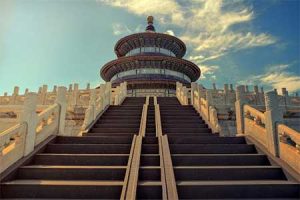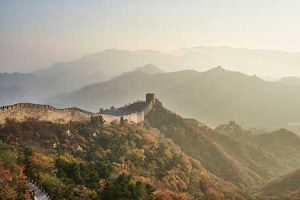 China just got off from their Tomb Sweeping Festival. Also known as Qingming Festival or Pure Brightness Festival, it stands as a poignant occasion where families gather to pay respects to their ancestors. Rooted deep in tradition and symbolism, this annual holiday displays the reverence China has for their familial ties and the timeless customs that bind generations together.
China just got off from their Tomb Sweeping Festival. Also known as Qingming Festival or Pure Brightness Festival, it stands as a poignant occasion where families gather to pay respects to their ancestors. Rooted deep in tradition and symbolism, this annual holiday displays the reverence China has for their familial ties and the timeless customs that bind generations together.
The Origin and Significance
 Dating back over 2,500 years, Tomb Sweeping Festival has its roots in the ancient Chinese practice of honoring ancestors and respecting the cycle of life and death. Historically, it was established as a time to tend to the gravesites of ancestors, cleaning away debris, offering sacrifices, and paying homage to their spirits. As the name suggests, the festival typically happens with the arrival of spring, symbolizing renewal, rebirth, and the cycle of nature.
Dating back over 2,500 years, Tomb Sweeping Festival has its roots in the ancient Chinese practice of honoring ancestors and respecting the cycle of life and death. Historically, it was established as a time to tend to the gravesites of ancestors, cleaning away debris, offering sacrifices, and paying homage to their spirits. As the name suggests, the festival typically happens with the arrival of spring, symbolizing renewal, rebirth, and the cycle of nature.
Traditional Practices
 Central to the observance of the Tomb Sweeping Festival are a myriad of customs and rituals that reflect the depth of Chinese cultural values. Families embark on pilgrimages to ancestral gravesites, laden with offerings of food, incense, and paper money. During these visits, families also participate in the ritual of burning joss paper, symbolic representations of money and other material goods, to provide for their ancestors in the afterlife.
Central to the observance of the Tomb Sweeping Festival are a myriad of customs and rituals that reflect the depth of Chinese cultural values. Families embark on pilgrimages to ancestral gravesites, laden with offerings of food, incense, and paper money. During these visits, families also participate in the ritual of burning joss paper, symbolic representations of money and other material goods, to provide for their ancestors in the afterlife.
They meticulously clean the tombs, remove weeds, and tidy the surroundings as a gesture of respect and remembrance. It is believed that by maintaining the graves, the spirits of ancestors will be appeased and blessings will be bestowed upon the living.
Modern Observance
 While the Tomb Sweeping Festival remains deeply rooted in tradition, contemporary observance has changed to encompass a blend of ancient customs and modern practices. In urban areas, where ancestral graves may be distant or inaccessible, families often pay homage at ancestral shrines within their homes or visit public cemeteries.
While the Tomb Sweeping Festival remains deeply rooted in tradition, contemporary observance has changed to encompass a blend of ancient customs and modern practices. In urban areas, where ancestral graves may be distant or inaccessible, families often pay homage at ancestral shrines within their homes or visit public cemeteries.
The festival has become an occasion for family reunions and outdoor excursions, as people take advantage of the mild spring weather to enjoy nature and celebrate the beauty of the season. Parks and scenic spots are filled with families flying kites, picnicking, and partaking in leisure activities.
Tomb Sweeping Festival serves as more than a commemoration of the departed; it is a profound reflection of Chinese cultural values and traditions. It is also a testament to the enduring resilience of Chinese cultural heritage in the face of modernization and societal change.
Tomb Sweeping Festival offers a moment of reflection, remembrance, and reverence for the journey of life for the Chinese People in an otherwise hectic world. For more information about China, or how these holidays affect manufacturing check out our other posts!
